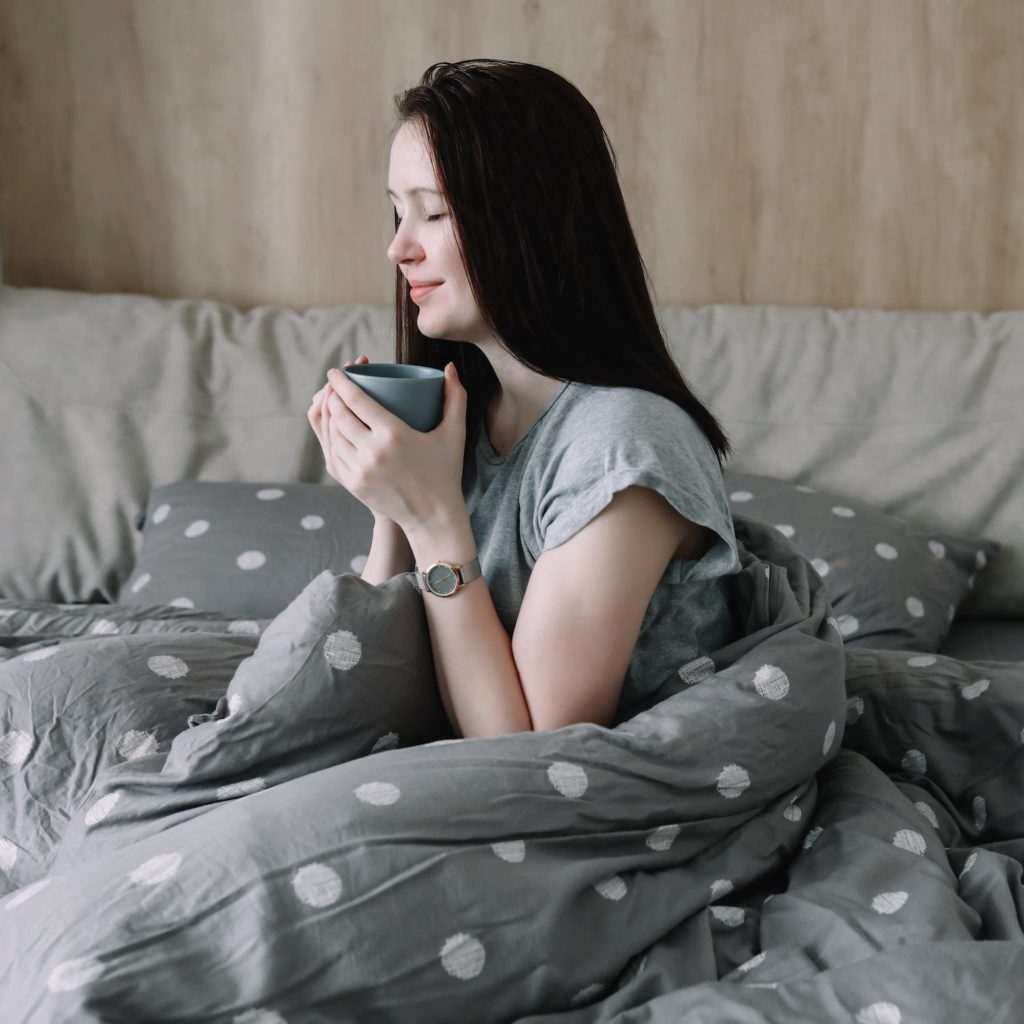Kiwi is a standard presence in fruit salad. But does it have a place in your own kitchen’s fruit bowl? Loaded with Vitamin C, kiwi has potent antioxidant properties, which help boost immune system function and enhance cell protection and repair. Studies point to the high-fiber, potassium-rich kiwi as a possible aid to heart health and to respiratory function. Research suggests that kiwi is beneficial for children with respiratory problems. With all these benefits, its no surprise that kiwi often finds a place on lists of “superfoods,” those whole foods that pack the strongest nutritional and health-protective punch.
Here’s some news that might make kiwi a true superfood: new research suggests that eating kiwifruit may have significant benefits for sleep.
Kiwis and Sleep
Researchers at Taiwan’s Taipei Medical University studied the effects of kiwi consumption on sleep. They found that eating kiwi on a daily basis was linked to substantial improvements to both sleep quality and sleep quantity. Their study included 22 women and 2 men between the ages 20-55. All were experiencing some form of disrupted sleep. For a period of 4 weeks, the volunteers ate 2 kiwifruit 1 hour before bed. Researchers collected data on volunteers’ sleep throughout the study period using sleep diaries, a standard sleep-quality questionnaire, and wristwatches that measured aspects of sleep quality and quantity. After 4 weeks of kiwi consumption, researchers found significant improvements to several measures of sleep:
- People fell asleep more quickly. Sleep onset latency—the amount of time it takes to fall asleep after going to bed—decreased by 35.4%.
- People slept more soundly. Waking time after sleep onset—the amount of time spent in periods of wakefulness after initially falling asleep—fell 28.9%.
- Sleep quality improved. Scores on a standardized sleep quality questionnaire—where lower scores mean better sleep—decreased by 42.4%.
- Sleep efficiency—a measurement of the amount of time spent actually sleeping compared to the total amount of time spent in bed—increased by 5.41%.
- People slept more overall. Total sleep time among the volunteers increased by 13.4%.
These are some pretty dramatic improvements to quality, quantity and efficiency of sleep. We need to see additional research explore the sleep-promoting effects of kiwifruit, but this is a pretty intriguing start.
Kiwi Benefits
What’s behind the possible benefits of kiwi to sleep? There are a couple of characteristics of the fruit that may make it a strong sleep-promoting food: its high antioxidant levels and its high serotonin levels.
The same antioxidant properties that provide so many other health benefits also may help to improve sleep. The relationship between antioxidant foods and sleep is one we’re just beginning to understand. Research has established a basic link between sleep and antioxidants in the body. Studies show that poor sleep is associated with decreased antioxidant levels, and also that recovery sleep appears to help restore antioxidant levels. A number of studies have demonstrated the negative effects of obstructive sleep apnea on antioxidant function, and that the antioxidant vitamin C is effective in treating cardiovascular problems associated with sleep apnea. But what about improvements to sleep itself? We’ve yet to see much research directed at the role of antioxidants and antioxidant-rich foods in promoting sleep. This latest study may well indicate a role for kiwifruit and other high-antioxidant foods in treating sleep problems.
Beyond its strength as an antioxidant, kiwi is also a fruit high in serotonin. A hormone that also functions as a neurotransmitter, serotonin is involved in a broad range of physiologic processes: it has digestive and cardiovascular functions, assists in learning and memory, and helps to regulate appetite and mood. Serotonin deficiency has long been associated with depression and mood disorders. The relationship of serotonin to depression has never been fully understood, and the precise role of the hormone in depression and other mood disorders remains contested among scientists. Serotonin is also critical in sleep. Serotonin in the body contributes to several aspects of sleep, including helping to initiate sleep onset and to maintain sleep during the night. The hormone is involved in regulating movement through the stages of sleep, including time spent in the deepest, slow-wave sleep. Serotonin also helps to stimulate wakefulness in the morning. Research indicates that manipulation of levels of serotonin up or down can promote or inhibit sleep. Serotonin appears to interact with melatonin, another hormone essential to sleep, in helping to regulate the body’s 24-hour circadian cycle as well as other physiologic functions. Studies have shown that the stimulation of serotonin levels may in turn increase melatonin levels. The presence of a relatively high concentration of serotonin in kiwifruit may contribute to its apparent ability to improve sleep.
Final Thoughts
Kiwi isn’t the only potentially sleep-boosting food out there. There are a number of other types of food that can aid sleep. Magnesium and potassium rich foods help promote relaxation and circulation. They include dark leafy greens, bananas, nuts, seeds, citrus, tomatoes, and whole grains. Foods high in calcium help to boost melatonin levels. In addition to dairy, soy, nuts, seeds, and whole grains are strong calcium sources.
So, should you run out and buy a bag of kiwi for a pre-bedtime snack? One study can’t tell us all that we need to know about the effect of kiwifruit consumption on sleep. We’ll need to see additional research to confirm and expand on these very interesting initial results. That said, there is little question that a vitamin rich, low-fat and low-sugar diet is beneficial for your sleep. And the possibility that we might harness the power of certain foods like kiwi as a natural, low-cost, non-pharmacologic, direct treatment for sleep is an exciting one, and worth further investigation.
References
Ask the Sleep Doctor
Have questions about sleep? Submit them here! We use your questions to help us decide topics for future articles, videos, and newsletters. We try to answer as many questions as possible. You can also send us an email. Please note, we cannot provide specific medical advice, and always recommend you contact your doctor for any medical matters.








